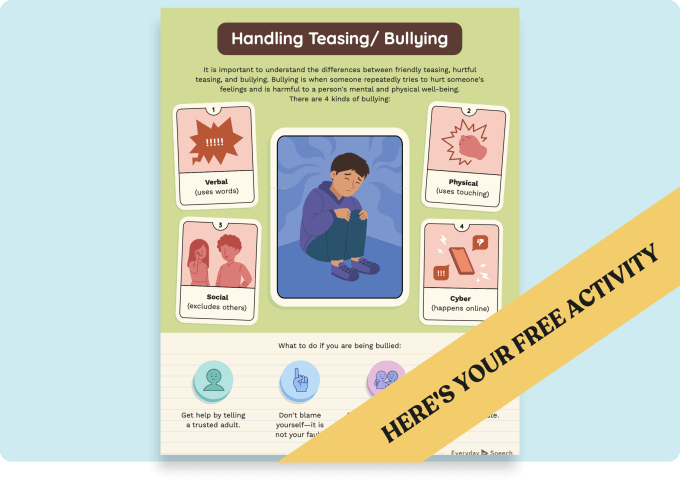Effective IEP Goals for Conversation Skills in PreK Special Education
Get free social skills materials
No-prep lessons on self-regulation, emotional recognition, conversation skills, and more.
Sign up hereDownload 50+ Example IEP Goals
Customizable library of strengths-based goals
Introduction
Conversation skills are essential for PreK students in special education, as they form the foundation for successful social interactions and academic achievement. By focusing on these skills, educators can help students develop meaningful relationships and become effective communicators.
Understanding Conversation Skills
Conversation skills refer to the ability to initiate, maintain, and end conversations appropriately. These skills impact students’ learning, social interactions, and wellbeing, as they enable them to express their thoughts, feelings, and needs effectively. Developing conversation skills in PreK students can lead to increased confidence and improved social connections.
The Role of Specialists
Various specialists can support the development of conversation skills in special education settings:
- Speech-Language Pathologists: They can assess and address speech, language, and communication challenges that may hinder conversation skills.
- Social Workers: They can provide social skills training and facilitate group activities to help students practice and improve their conversation abilities.
- Psychologists: They can evaluate and support the emotional and behavioral aspects that may impact conversation skills, such as anxiety or attention difficulties.
- School Counselors: They can offer guidance on fostering positive peer interactions and navigating social situations that involve conversation skills.
IEP Goals for Conversation Skills
Here are some specific SMART IEP goals to improve conversation skills in PreK students:
Goal 1: Initiating Conversations
By [date], the student will initiate a conversation with peers or adults by getting their attention and greeting them appropriately in 4 out of 5 opportunities, as measured by teacher observation and data collection.
Strategies and Activities: Role-playing, modeling, social stories, and visual supports to teach conversation initiation.
Goal 2: Maintaining Conversations
By [date], the student will maintain a conversation by taking turns, asking relevant questions, and making connected comments in 4 out of 5 opportunities, as measured by teacher observation and data collection.
Strategies and Activities: Turn-taking games, conversation scripts, and structured group activities to practice conversation maintenance.
Goal 3: Ending Conversations
By [date], the student will end a conversation appropriately by considering polite timing, offering a reason for ending the conversation, making a final connected comment, and saying goodbye in 4 out of 5 opportunities, as measured by teacher observation and data collection.
Strategies and Activities: Teaching polite timing cues, role-playing different conversation endings, and providing visual supports for ending phrases.
Implementing and Measuring Progress
To effectively implement these IEP goals and measure progress, consider the following tips:
- Collaborate with specialists to ensure a comprehensive approach to conversation skill development.
- Use data collection tools, such as checklists or rating scales, to track progress over time.
- Adjust teaching strategies and activities based on the student’s individual needs and progress.
- Involve families in the process and provide resources for practicing conversation skills at home.
Conclusion
Developing effective IEP goals for conversation skills is crucial in supporting PreK students’ social and academic success in special education settings. By understanding these skills and collaborating with specialists, educators can create a supportive environment that fosters growth and progress. We encourage you to explore more resources and sample materials at Everyday Speech Sample Materials.



